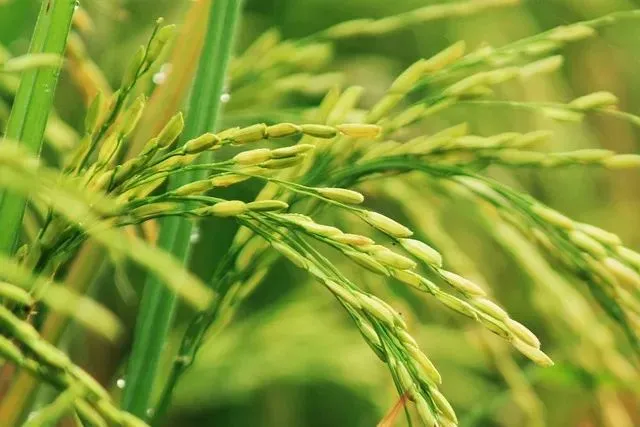
Adopted Agriculture - a new form of sharing economy
In the past decade, the heat wave of the sharing economy has almost scanned all industries several times, from the very beginning of shared bicycles to the ubiquitous shared charging bank, the sharing economy is actually a kind of resource use right circulation under the premise of Internet technology, its core feature is based on information technology platform resource optimization allocation. But it seems that the drama of shared farming has not really begun.
Judging from the past situation of China's economic development, adoption economy will eventually become a new form of sharing economy. In the future, it will slowly penetrate into more fields, and gradually accumulate relevant operational experience with the passage of time, and with the exploration of various kinds of sharing economy, adopted agriculture will become a new opportunity for agriculture.
01 What is Adopted Agriculture
Adopted agriculture is a kind of order agriculture, which refers to a risk-sharing and benefit-sharing production mode reached between producers and consumers, that is, the so-called adopters. Consumers prepay production costs, and producers provide consumers with green and organic food. To realize the direct docking of rural to urban, land to table. To put it simply, that is, farmers out of the land, adopters pay to plant the products that adopters want.
In terms of national policies, in April 2022, the Central Cyberspace Administration, the Ministry of Agriculture and Rural Affairs, the National Development and Reform Commission, the Ministry of Industry and Information Technology, and the National Rural Revitalization Bureau jointly issued the "Key Points for Digital Rural Development in 2022", deploying 30 key tasks in 10 aspects, which proposed to cultivate new forms of rural digital economy. We will promote the development of new Internet-based business forms such as leisure agriculture, creative agriculture and adoption agriculture.
02 Adopt the characteristics of agriculture
1. direct contact and high participation
The adoption model is based on a direct link between producers and consumers of agricultural products. By buying or supporting specific agricultural products or fields, adopters have a closer relationship with farmers and a higher level of participation.
2. Economic support for farmers
The adoption model provides stable economic support for farmers. By receiving support from adopters in advance, farmers can better plan their production and purchase farm supplies, reducing financial pressure.
3. Traceability and transparency
Adoption mode requires the traceability of products, consumers can clearly understand the production process of adopted products, including planting, breeding, harvesting and other links, improve the transparency of products.
4. Sustainable development
The adoption model promotes sustainable agricultural practices. Through direct contact with farmers, adopters have the opportunity to make agricultural production more environmentally friendly and sustainable, and promote the development of sustainable agricultural models such as organic farming and zero-fertilizer farming.

03 Model of adopted agriculture
First, the traditional adoption model
It is to share the resources owned by rural areas, so that high-quality agricultural products can be sold at a good price, so that rural resources can play a greater role and create greater value.
1. Adoption mode of agricultural products
Product adoption is one of the most direct forms of adoption agriculture. City dwellers can directly support farms or farmers by buying property rights to specific agricultural products or a certain amount of production. Consumers pay a fee in advance to buy produce in the form of adoption and then receive a corresponding share of the produce at harvest time.
For example, organic vegetable adoption, consumers pay a fee and receive fresh vegetables from an organic farm on a weekly or monthly basis.
2. Farmland adoption mode
Consumers support the farmer's entire farmland through adoption, including the land and related agricultural production activities. In the form of farmland adoption, farmers adopt a piece of land to urban residents, who can regularly participate in the management and harvest of the farmland.
Under this model, adopters buy the right to use a piece of farmland and sometimes even participate in its planning and management. Such a model makes adopters more deeply involved in the agricultural production process, feel the hard work of farming and the joy of harvest.
3. Ecological adoption model
With an emphasis on eco-friendly farming practices, adopters support farmers by paying fees to adopt environmentally friendly, sustainable farming and farming methods. Agroecological adoption is concerned with the whole ecosystem of farmland. The adopters not only support the ecological balance of a particular farm, but may also participate in ecological activities such as planting trees and protecting wildlife, and promote the development of agriculture in a more sustainable direction.
Second, Internet + adoption of agricultural model platform
The core concept of the "Internet + adoption model" is to directly connect consumers with agricultural producers through the Internet platform, so that consumers can directly adopt agricultural products, so as to participate in the agricultural production process and realize the docking of production and marketing. This model not only provides consumers with fresher and healthier agricultural products, but also brings more stable and reliable sales channels for agricultural producers.
1, "quality pursuit" and "emotional consumption" combined user experience
Through real-time video surveillance, the whole process of adopted products can be visually tracked, so that the entire production track of agricultural products is exposed to the sun and accepted the joint supervision of all consumers; At the same time, the adoption process is also the process of accompanying the breeding animals to grow together, its daily activities, growth indicators, photos and images can be mastered at any time through the "cloud adoption" mini program, and can also be combined with video, Internet of things equipment, live broadcasting, online and offline activities to interact with the breeding animals. In this way, consumers know the situation of the product in real time, meeting the demand for green agricultural products, but also increase the joy of the product, improve user satisfaction.
2. Focus on marketing, operation and sharing of e-commerce design
In terms of product functions, we always think from the perspective of market customers, that is, focusing on improving user activity, improving user retention, obtaining revenue, self-dissemination, and fully considering the workload and ease of use of actual operations. For example, in the new and fission of customers, sharing content is designed in multiple locations such as goods and adoptions, and friends can be added as co-adopters in the adoption link. In the technology selection, small programs are also used as carriers to facilitate transmission; At the marketing level, it has set up a variety of promotional tools such as adoption coupons, gift cards, coupons, and exchange coupons, and can flexibly configure the superposition of various preferential rules, and at the same time to meet the needs of different users, support the setting of diversified sales programs, users can choose meat products or agricultural products gift boxes, and can also be replaced with equivalent gift cards to buy other goods on the online mall.
3. Diversified industrial ecological integration ability
Adoption, like purchase, reservation and sharing, is a consumption mode with mining potential and can be combined with many formats and scenarios. "Cloud adoption" can be applied to a variety of scenarios, and its silkworm adoption, social economy around emotional consumption, and self-pleasing economy can have a wide range of space.

04 Adopt the advantages of agriculture
1、Stable market and income
The adoptive agriculture model enables farmers to receive advance payments for the products they need to sell, which not only helps to reduce the financial pressure on farmers, but also helps to plan the production and operation of agricultural products in advance. Farmers are able to grow and breed with more confidence because they know that a certain amount of sales is foreseeable. This provides them with financial security, making long-term planning and investing more feasible.
2、Reduce agricultural risks
The advance sale of the adoption system can mitigate farmers' economic losses caused by market fluctuations, natural disasters or other uncontrollable factors.
This approach to spreading risk makes agriculture more resilient and helps farmers better cope with unpredictable challenges. Farmers can focus more on adopting sustainable agricultural practices without worrying too much about short-term economic uncertainty.
3、We will increase the added value of agricultural products
Adoptive agriculture encourages direct farmer-consumer connections through which the added value of agricultural products is increased. Adopters usually have higher expectations for the quality, freshness and production process of the product, which drives farmers to provide higher quality products.
Agricultural products sold through adoption systems are able to command higher prices, which in turn encourages farmers to adopt more sustainable and environmentally friendly farming practices, further increasing the added value of their products.
4、Promote agricultural sustainability
Adopted agriculture is often combined with the principles of sustainable agriculture, including organic farming, water management, and soil conservation. By supporting these practices, adopted agriculture helps reduce reliance on chemical pesticides and fertilizers and lower the burden on the environment.
This helps to maintain the ecological balance and protect the health of the ecosystem, while providing healthier and more sustainable agricultural products.
5、 Extend the industrial chain and value-added services
Adopted agriculture promotes the integration of agriculture and other industries, such as rural tourism, parent-child education, leisure experience, etc. Agricultural producers can develop a series of value-added services around adoption activities, such as open visits, experience farming activities, etc., to broaden the source of income, but also reduce the risk of relying solely on the sales of agricultural products.

05 Adopt the market foresight of agriculture
1, the adoption of agriculture helps to establish a brand, through the road of electricity
Adopted agriculture is a new consumption pattern, which impinges on people's need for local life and healthy food. It is also provoking people's curiosity.
With the continuous improvement of the quality of life of the middle class, under the premise of economic permitting, adopted agriculture will be favored by more and more consumers. The rise of the e-commerce industry has also facilitated the transportation and sales of adopted agriculture. Therefore, as long as agriculture can ensure product quality and create a safe and reliable ecological reputation, it will naturally form a brand and eventually form a brand effect.
2, the adoption of agriculture to meet the requirements of high quality consumer
New concepts, new gimmicks, initially a large number of people will be interested in it, willing to try new, attract a lot of attention. The demand for high-quality and healthy agricultural products is enduring, and adoption agriculture can therefore continue to develop.
Therefore, in fact, most adopted agriculture will have good market expectations under the premise of ensuring quality. However, it is necessary to operate well and strive for a multi-win pattern. Ensure the quality, so that consumers win health, in order to ensure the market.
For farmers, through the change of production mode, you can get higher returns, to achieve multi-channel wealth, is also desired. For the company, there is an additional source of profit.
Adopted agriculture is a multi-win model with broad market prospects.
3. Adopted agriculture can form scale operation, which is conducive to attracting capital
At present, China's capital market actually has a lot of surplus funds, are looking for good investment projects. After the adoption of agriculture can form a large-scale trend, it will attract a lot of capital to enter this industry.
The entry of capital will certainly promote the development of adopted agriculture to quality and sustainability, which is long-term good for ecological agriculture.
Adopted agriculture is essentially a new attempt of "sharing economy" in the agricultural field, breaking the "last mile" barrier from land to table.
It not only provides a unique experience for urban residents, but also plays a positive role in promoting sustainable agricultural development and promoting urban-rural integration. By participating in adopted agriculture, each of us has the opportunity to become an advocate for green development and contribute to a better rural and urban future.
Part of the picture source network, infringement please contact delete!

